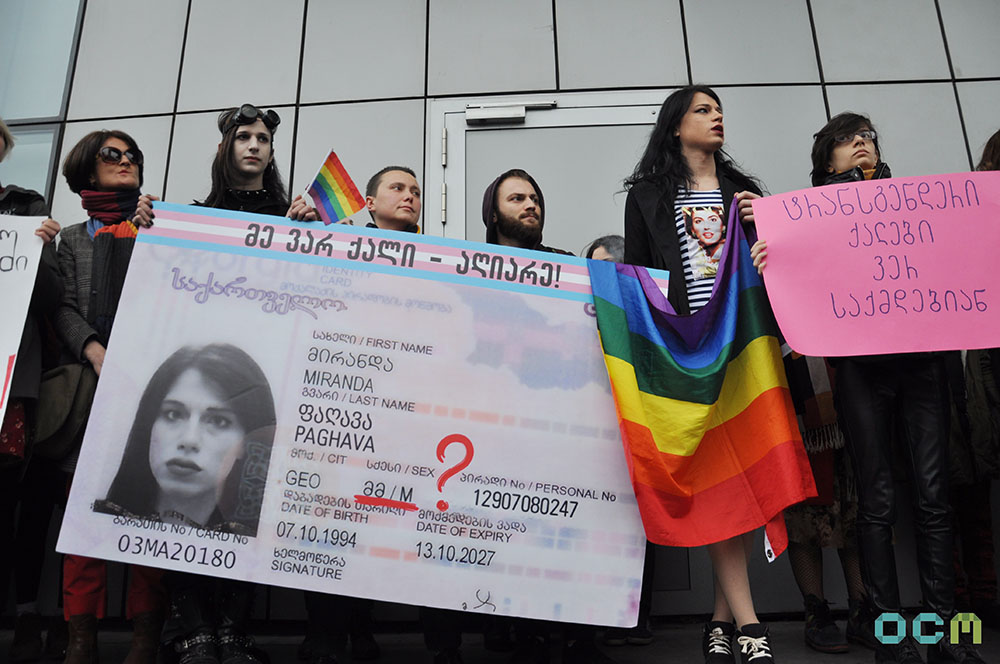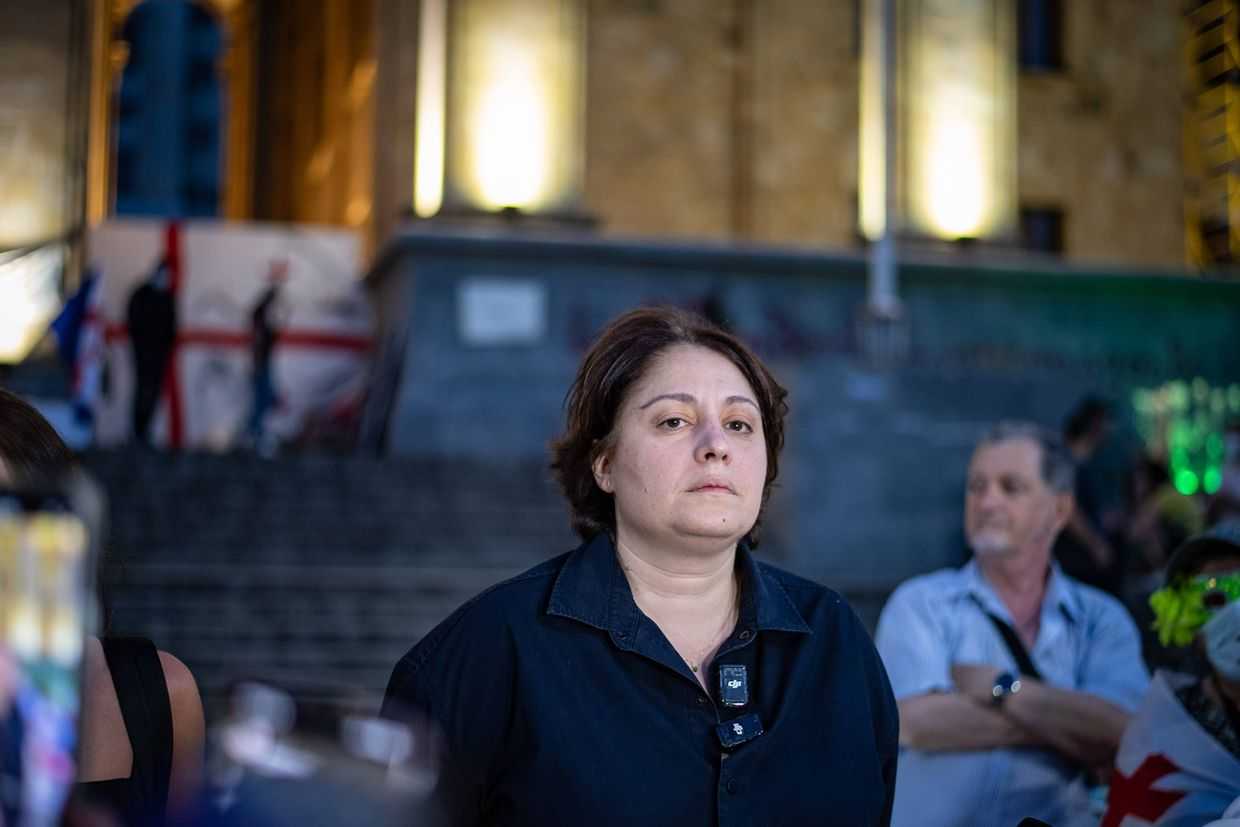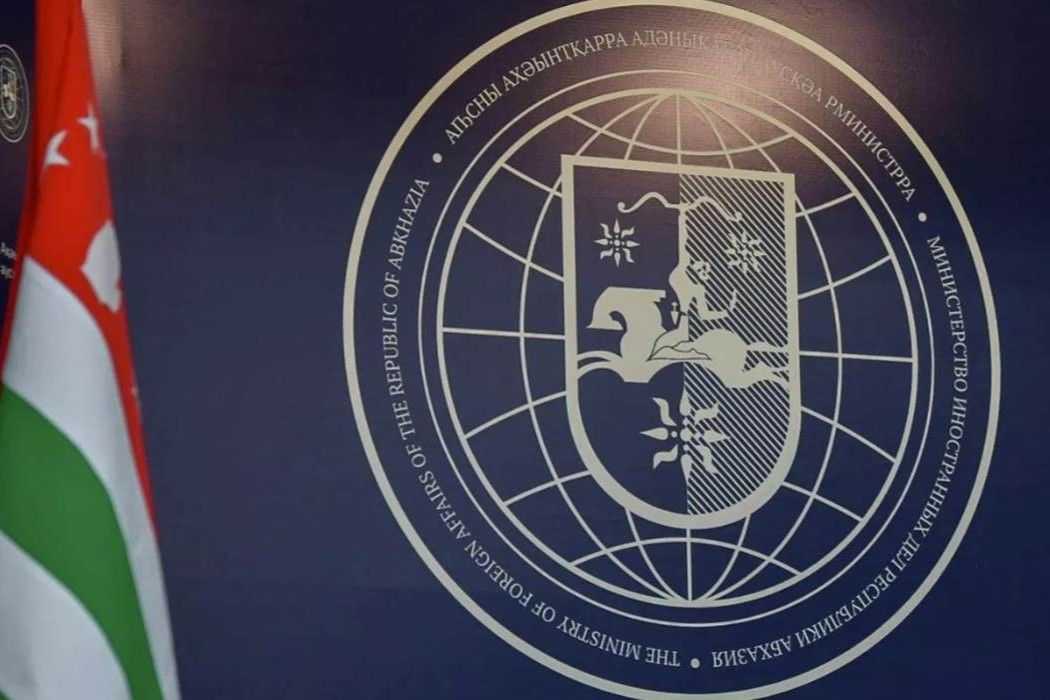
The European Court of Human Rights (ECHR) has ruled that Georgian legislation surrounding gender recognition is vague and a source of ‘arbitrary decisions’, ruling in favour of three Georgian transgender men.
On Thursday, the ECHR found Georgia in violation of Article 8 — the right to respect for private and family life, of the European Convention on Human Rights.
The court noted that Georgia’s current legislation was ‘fundamentally at odds’ with the state’s obligation to ensure ‘quick, transparent, and accessible procedures for legal gender recognition’.
‘The lack of a clear legal framework leaves the gatekeepers — the competent domestic authorities — with excessive discretionary powers, which can lead to arbitrary decisions in the examination of applications for legal gender recognition’.
While Georgian legislation does allow trans people to change the sex marker in their documents in certain circumstances, the court underlined that the lawsuit illustrated that ‘it is not clear at all what the legal regime for the change of the sex/gender marker actually is in Georgia’.
The court ordered Georgia to pay each applicant €2,000 ($2,100) in moral damages.
The complaint was submitted by three Georgian trans men, Nikolo Ghviniashvili and two others, to whom the Georgian authorities had refused to issue documents with gender markers matching their gender identities.
Ghviniashvili hailed the ruling, calling it a ‘step in the right direction’.
‘We have shaken up the state and showed them that we also exist — and that they have to pay attention to us’, Ghviniashvili told OC Media.
The case was litigated by the London-based rights group, the European Human Rights Advocacy Centre (EHRAC), as well as Georgia-based groups the Women’s Initiative Supporting Group (WISG) and the Georgian Young Lawyers’ Association (GYLA).
Jessica Gavron, co-director of EHRAC, described the ruling as a ‘very strong judgement’ and the first successful case against Georgia in the area of legal gender recognition.
‘The Court makes it very clear that Georgia has an obligation under the Convention to provide quick, transparent, and accessible procedures for legal gender recognition, and this judgment provides a powerful platform to advocate for this change’, Gavron told OC Media.
In their judgement on Thursday, the ECHR stopped short of ruling that Georgia violated Articles 3 (prohibition of torture or inhuman treatment) and 14 (prohibition of discrimination) of the European Convention on Human Rights.
‘We believe that the issue of discrimination is central to this case and it is disappointing that the Court found “no need” to examine our complaints under this point, particularly given the marginalisation of trans persons in Georgia’, Gavron noted shortly after the ruling.
An invasive procedure
It will now be up to the Georgian authorities to introduce clear regulations for legal gender recognition, including changing official records of one’s name and sex, which would facilitate respective changes in ID, educational, and other documents.
Legal change of sex is currently conditioned on undergoing sex reassignment surgery, an invasive and irreversible procedure which also leads to sterilisation.
In March 2021, the Tbilisi Civil Registry allowed a transgender woman to have her gender marker changed from ‘male’ to ‘female’, the first case in the country’s history.
[Read more on OC Media: First legal gender recognition in Georgia for trans woman]
However, procedures for undergoing medical sex changes remain vague in Georgian legislation, are unavailable, and also unaffordable for the overwhelming majority of transgender people in the country.
Additionally, requiring medical sex change to regulate legal name recognition has been widely criticised by transgender rights advocates.
In a landmark 2017 judgement against France, the ECHR ruled that requiring medical and surgical intervention in order to change one’s gender in their official documents according to their identity amounted to a violation of Article 8 of the Convention.
In their 1 December ruling against Georgia, the ECHR went as far as warning the Georgian government over their lax use of ‘biological, physiological and/or anatomical criteria’ in the Civil Status Act.
‘Each of those terms had its own particular meaning and entailed distinct legal implications. For instance, if “change of sex” was to be defined on the basis of biological criteria, then it would never be possible to obtain legal gender recognition, as chromosomes could not be changed by any amount of medical intervention’, the court noted.
Discrimination in public services
One of the plaintiffs to win the case in the ECHR on Thursday was Nikolo Ghviniashvili, an outspoken advocate for queer rights in Georgia.
In 2015, Georgia’s civil registry refused to correct the gender marker in Ghviniashvili’s documents despite him having a medical certificate noting ‘transsexualism’ (an outdated diagnostic category that refers to gender incongruence) and having undergone hormonal treatment. The authorities cited a lack of a medical sex change document.

Before taking his case to Strasbourg in 2019, Ghviniashvili unsuccessfully tried to challenge the decision at all levels of the Georgian courts by arguing that he should not need such a document to have his legal gender reassigned.
In 2017, Georgia’s Supreme Court denied Ghviniashvili’s appeal based on a lack of medical proof his hormonal therapy was ‘irreversible’.
Ghviniashvili said that the contradiction between his actual gender and the gender indicated in his official documents had caused him a number of problems.
‘I was once stopped for 40 minutes at the Georgian-Azerbaijani border’, Ghviniashvili told OC Media. ‘They kept telling me there was a mistake in the gender section of my passport. Border guards could not decide if it should have been a woman or man to inspect me’.
Ghviniashvili said Georgian trans women also often face similar problems.
‘Imagine how acceptable it would be for transgender women to be placed in a room for men patients… so many incidents happen in the lives of us, transgender people, that there should be a regulation of how should we be treated so that we also feel like humans’.
Unrecognised gender identity and a resulting discrepancy between social (transgender) and legal (assigned cisgender) identities expose many transgender people in Georgia to involuntary ‘coming out’ and discrimination by public service providers, including in healthcare, as well as banks.
It also leads to the prevalence of unemployment among transgender people, who face discrimination by potential employers who often focus on the mismatch between the assumed gender of an applicant and their identity documents.
[Read on OC Media: No place for transgender people in Georgia’s labour market]
Transgender rights advocates also point out that legal discrimination against transgender people in Georgia only aggravates their vulnerability to the prevalent social stigma and hate crimes.







